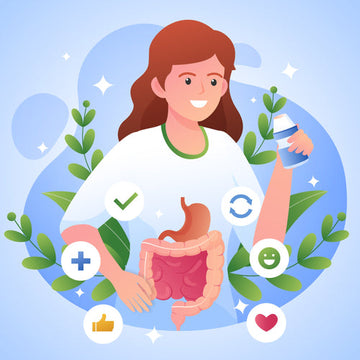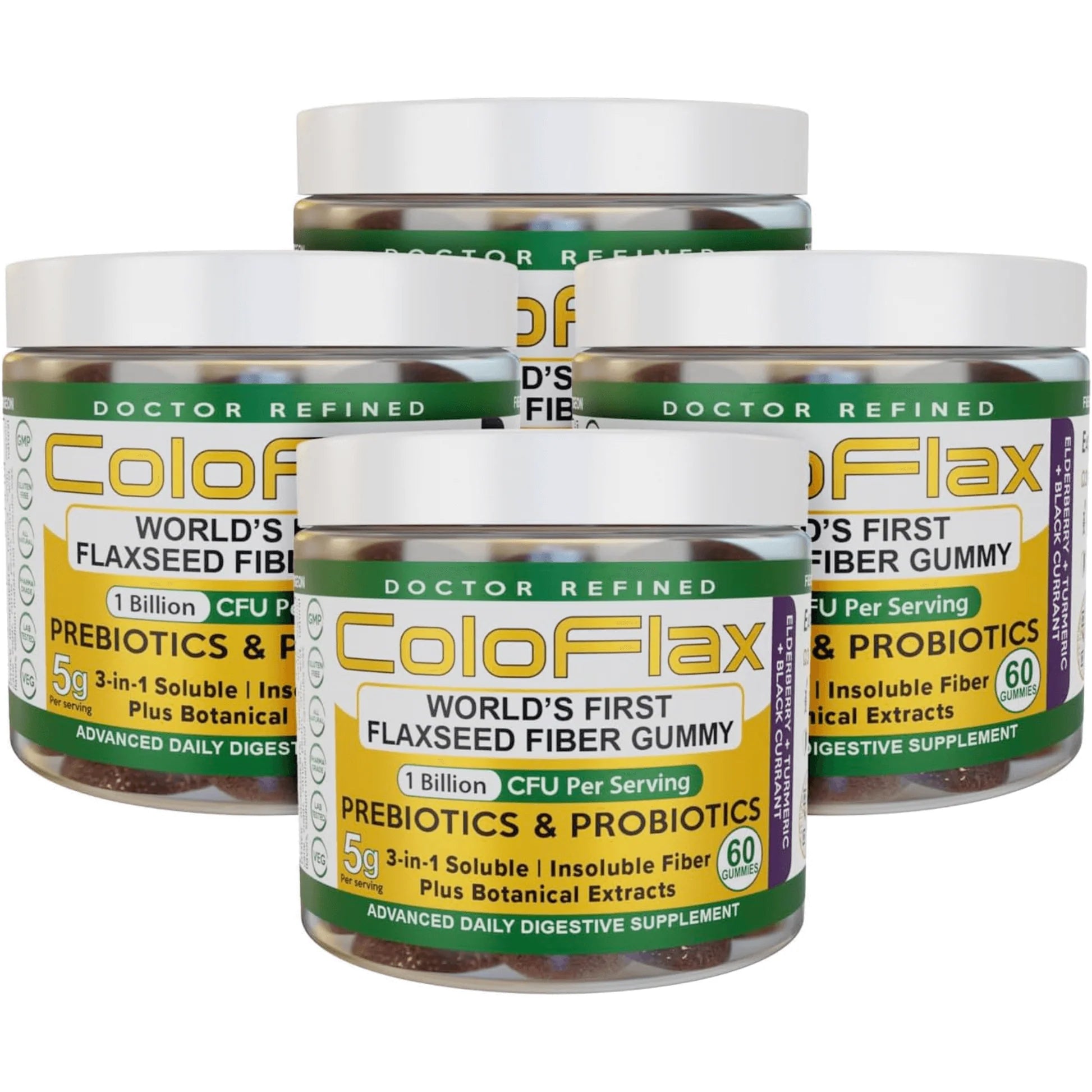What do you do when you’re constipated? If you’re like the average American, you probably reach for a laxative and keep taking it until the issue resolves. It’s an effective solution, but it’s not always the best one.
Firstly, laxatives are designed for short-term use only. Using them excessively could make your bowels lazy and mean that you need those laxatives to have a normal bowel movement. Secondly, they often come with unpleasant side effects, whether that means your constipation turns into diarrhea or you end up with excessive gas and abdominal pain.
There is another solution though: food. You probably know that a high-fiber diet will greatly reduce your chances of getting constipation, along with other gastrointestinal issues. What you might not know is that the right foods can also cure constipation, providing both short-term relief and a long-term solution.
What follows is a list of the best foods for relieving constipation. Add these to your diet today and your problems could be very short-lived.

Rhubarb
Rhubarb is a divisive vegetable. Traditionally used in candies and desserts, it has a very tart and unique flavor and is also a distinctive and beautiful plant. Whether you’re a fan or not, you can’t argue with the medicinal properties, as this plant is a true digestive powerhouse.
A single cup of rhubarb contains over 2 grams of fiber. That might not sound like much, but that cup contains around 25 calories, which means just 100 calories of this tart veggie-fruit will give you 8 grams of fiber.
More importantly, rhubarb is a natural source of sennoside A. If that name rings a bell, it’s because sennosides are used in numerous popular laxatives, including Ex-Lax.
These compounds work by decreasing the levels of a protein responsible for transporting water from the colon into the blood. The result is that more fluid remains in the colon, helping to soften the stools and ease their transition through the gut.
Not sure how to eat rhubarb? It can be boiled down with a little sugar and water and then used as a sauce for desserts, pies, ice cream, and even oatmeal. Admittedly, it’s not the most diverse vegetable and typically requires a lot of sugar, but you can’t argue with those constipation-killing properties.

Prunes and Prune Juice
Let’s be honest, you probably knew that prunes were going to make an appearance on this list, and not without reason. Prunes are just dried plums, but they possess a unique type of sugar that can work wonders for curing your constipation. What’s more, that sugar is even more concentrated in prune juice, so if you want a quick and easy solution, just drink a cup or two.
That substance is sorbitol. It is a type of sugar alcohol that the body struggles to absorb and thus processes very slowly. As a result, it draws a lot of water into the gut and greatly softens the stool.
In that sense, it works a lot like rhubarb, only prune juice is arguably much easier to consume in therapeutic doses. The effects also tend to be more pronounced, and it often takes effect within just a few hours.
Incidentally, as well as being used as a laxative, sorbitol is also used as a sweetener and added to goods like chewing gum and sugar-free candies. That’s why these products often warn you that excessive consumption can have a laxative effect.

Flaxseeds
Flaxseeds are nutrient-dense powerhouses that provide your body with an array of essential and beneficial compounds.
100g of these seeds contain a massive 27g of fiber and 18g of protein, along with a host of vitamins and minerals. In addition to the fiber content, the benefits of flaxseeds are also aided by compounds known as lignans. These amazing plant compounds—linked with a host of health benefits and thought to support a range of bodily processes—are found throughout nature but there is a much higher concentration in flaxseed than any other food.
Flaxseeds are a vegan-friendly source of omega-3 fatty acids and are incredibly versatile. You can eat the seeds whole, sprinkle them on salads, or add ground seeds to smoothies. They are also one of the main ingredients in our ColoFlax gummy.

Figs and Dried Figs
Figs are incredibly high in fiber, as eating just a few of these delicious fruits will give you between 3 and 5 grams of the good stuff. As with some of the other fruits discussed in this guide, it’s not just the fiber that aids with digestion. Figs also contain nutrients and sugars that could introduce more water to the gut and assist with the passage of waste.
If you can’t find fresh figs where you live or don’t like the taste, pick up a bag of dried figs instead. They tend to be much sweeter and provide many of the same benefits. Just make sure you don’t eat too many of them, as they are high in calories and sugar and the low water content means it is much easier to overindulge than with fresh figs.

Green Peas and Split Peas
Peas are incredible and should have a place in every diet. Green peas are fresh, sweet, and packed with fiber, vitamins, minerals, and antioxidants. They work great as a side dish and can be added to everything from rice to stews. Split peas, which are equally nutrient-dense, are ideal for soups and dips.
Both of these varieties are high in protein and fiber, along with some key nutrients that could support digestive health.

Chia Seeds
Chia seeds, like flaxseeds, are protein and fiber-rich seeds that could support your digestive health. They form a gel-like substance when mixed with water and in addition to providing bulk to your stool, they can also make you feel more satiated, thus reducing cravings for high-fat and high-sugar foods that could harm your digestive health.
Adding a couple teaspoons of chia seeds to oatmeal or yogurt could rid you of troublesome constipation and help to make you more regular. And if you’re eating yogurt, make sure it’s natural…

Natural Yogurt and Other Fermented Foods
Fermented foods provide probiotics that support the gut microbiome. If your constipation struggles are the result of a recent course of antibiotics or a diet high in alcohol and/or fast food, you will benefit from consuming more fermented foods.
Look for words like “natural”, “live”, and “bio” when browsing for yogurt, and if you like sharp and spicy foods, pick up a jar of kimchi or sauerkraut. Some fermented foods are very acidic and typically not recommended for people with GERD, but there are always alternatives, such as miso and kefir.

Apples
You’ve no doubt heard the old saying that an apple a day will keep the doctor away. It’s not quite the panacea this idiom professes it to be, but it’s a potent fruit nonetheless and it could work wonders for your digestive health.
A single medium apple contains around 5 grams of fiber. It also has a small quantity of sorbitol, the sugar that makes prunes such an effective constipation remedy. Furthermore, it has been suggested that the fruit’s pectin content could aid with digestion, helping with regularity.
Apples are also a source of vitamin C, potassium, and copper, as well as a host of polyphenols that could play a variety of supportive roles in the body.

Pears
If you find apples a little too tough and crispy and prefer softer fruits, pick up some ripe and juicy pears instead. These fruits are very similar to apples and possess many of the same beneficial properties.
At around 5.5 grams per medium-sized fruit, pears have even more fiber. They also contain more of that all-important sorbitol, as well as fructose, which has similar properties. Combined, it means that pears help to create more bulk in the gut and draw more water inside, thus encouraging the smooth passage of waste.

Jerusalem Artichoke and Chicory
Many fiber supplements contain something known as inulin, a type of soluble fiber that adds bulk to the gut much in the same way as psyllium husk (another popular fiber supplement). Insulin is also a prebiotic, which means it “feeds” the bacteria in your gut and promotes a healthy microbiome.
Much of that inulin comes from chicory root, which is perhaps best known for its use as a coffee substitute, but can also be boiled and eaten. Jerusalem artichoke is rich in inulin too, and can be prepared much like you prepare potatoes.
Of course, these vegetables have a lot more going for them than just their inulin content. 100 grams of Jerusalem artichoke will give you around 20% of your daily requirement of iron, along with more than 10% of potassium, 2g of protein, and smaller amounts of vitamin C, vitamin B6, and magnesium. Chicory root is a source of potassium and many B vitamins.
Both of these foods also have other nutrients that could aid with digestion and overall health, including a variety of flavonoids.

Kiwi
The kiwi is a true superfruit. It contains just as much vitamin C as many citrus fruits and is also loaded with antioxidants. More importantly, as far as your digestive health is concerned, a single kiwi fruit contains over 2 grams of fiber and an enzyme known as actinidin.
Actinidin has been used as a meat tenderizer and was actually discovered when A.C. Arcus noted that kiwi jellies wouldn’t solidify like jellies made with other fruits, determining that this was caused by the enzyme breaking down the gelatine.
In the digestive tract, actinidin is thought to help with the breakdown of foods, particularly protein. Adding a couple of kiwi fruits to your day could have a notable impact on your digestion and well-being.

Water
Water is not a “food”, so we’re cheating a little bit by including it here. But it is arguably just as important as all of the foodstuffs mentioned above, if not more so.
Water is beneficial both in the short term and the long term. For instance, if you have constipation caused by opioid-based medication or a low-fluid diet, drinking a few glasses could get things moving and create surprisingly fast relief.
After all, your body needs water to keep the stools moist and ensure the smooth passage of waste through your intestines. If it’s not getting the water it needs, everything can become gridlocked. By providing it with that essential H20, it could get things moving again.
You may have heard that you need to drink 8 glasses of water per day. In truth, it’s not quite that simple. How much you need to drink will depend on everything from your diet and activity level to the local climate.
If you subsist on a diet rich in processed food, you’ll need more water than if you were to eat fresh fruits and vegetables, as these whole foods mostly consist of water.






